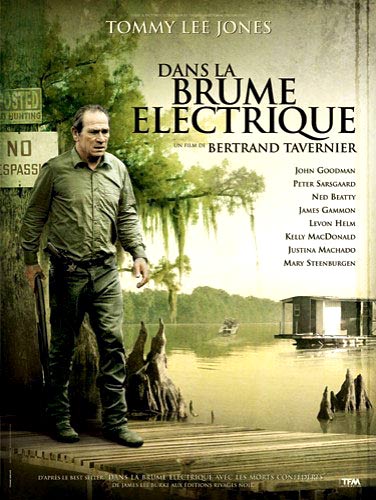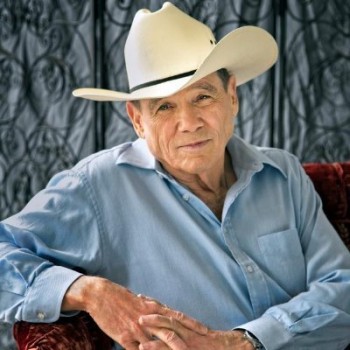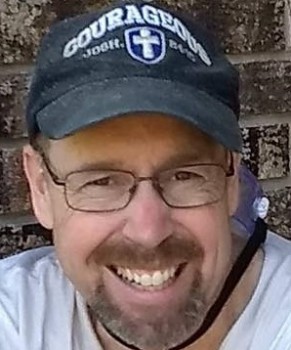A (Black) Gat in the Hand: James Lee Burke’s Cajun Hardboiled

Today, I’m going to write about James Lee Burke and Dave Robicheaux. It’s not going to be like my look at Tony Hillerman and his Navajo Tribal Police series, where re-read the first nine books and dug into his autobiography. This column is due in about 36 hours. But I put Burke back on my radar Friday night, and I’m glad I revisited him.
Two days after my birthday in 1987 (giving you the opportunity to do some research, find the date, and get me a birthday gift in 2021…), Burke’s first Dave Robicheaux novel, The Neon Rain, came out. He had already written a few books, in sort of the ‘Americana’ genre. The year before, The Lost Get-Back Boogie had given indications of what was coming. If you haven’t read that latter book, but you’ve read Burke, give it a try. I think you’ll like it.
Robicheaux is an alcoholic ex-cop, who runs a charter-fishing and boat shop in New Iberia parish (county), Louisiana. His best friend, another ex-cop named Cletus Purcell (who is a train wreck and a wrecking crew rolled into one) is a series regular. Robicheaux mostly just wants to be left alone with his wife and adopted daughter, but it never works out that way. And while he’s more than willing to go outside of the law, he’s an honorable guy.
There have been twenty-three books in the series. I’ve read the first twelve. I will read all of them, I just get sidelined and am always reading something else. I believe that Burke is probably the best hardboiled writer of the Post-Classic Era. I’ve read Elmore Leonard, and I know Ross MacDonald, and I’d put in myself a plug for the excellent Joe Gores. But before moving on to a movie adaptation, I’m just going to say that Burke is a phenomenal writer. His prose – especially in the latter books – is wonderful. It’s almost poetic in its imagery. And his books are violent, and there is evil in them. But Burke never glorifies evil.
Okay – Last week, I was reading a Cormac Mac Art book by Andrew J. Offutt. And it was the best sword and sorcery I’ve read in some years. I was also reading a Jack Higgins book. I have about forty of them, and I was tackling this one for the first time. And I was reading part of a book on famous Victorians as research for a story. And…re-reading a Solar Pons story for an article.
But as I was loading up a Psych re-watch (that was last week’s topic, you’ll recall), I saw that Prime has In the Electric Mist. I had watched that some years before, and it didn’t do much for me. It was based on the sixth novel in the series; In the Electric Mist with the Confederate Dead.
That movie came out in 2009. Back in 1996, New Line Cinema put out a version of Heaven’s Prisoners with Adam Baldwin and Kelly Lynch in the lead roles. Eric Roberts and Mary Stuart Masterson led the backing cast. With a $25 million budget, it made $5 million world-wide. It was the 161st-highest grossing movie of the year. Mulholland Falls, and Last Man Standing, both came out that year as well and didn’t fare much better. Tough market for crime films.
It’s an okay movie, but Baldwin isn’t right for Robicheaux. Eric Roberts, who plays the villain, seemed to me like a good choice (back then) to play Clete. It’s a watchable movie, but it definitely leavers the Burke reader, unfulfilled. Kind of like watching any of the Conan movies and TV shows, if you’re a Robert E. Howard fan.
A few years pass by, and Tommy Lee Jones wanted to make a Robicheaux film. I absolutely admire Jones’ determination to get this film made. He brought French film auteur guy Bertrand Tavernier to shoot In the Electric Mist in Louisiana. Tavernier had made Coup de Torchon, a French version of Jim Thompson’s hardboiled noir book, Pop. 1280.
Jones himself stars, and the cast includes Mary Steenburgen, John Goodman, Ned Beatty, James Gammon, Levon Helm (of The Band), and Buddy Guy in his first movie appearance.
 With over fifteen books in print at the time, In the Electric Mist with the Confederate Dead was an odd choice. Robicheaux spends the novel hallucinating conversations with Confederate general John Bell Hood (Helm). I think it’s the weirdest book I’ve read in the series.
With over fifteen books in print at the time, In the Electric Mist with the Confederate Dead was an odd choice. Robicheaux spends the novel hallucinating conversations with Confederate general John Bell Hood (Helm). I think it’s the weirdest book I’ve read in the series.
But the biggest problem is that Jones is simply completely wrong for the part. He’s a fine actor. And he literally made this movie by force of will. But he’s just not the guy. It’s worth a watch, but it doesn’t work as a Robicheaux flick.
Unfortunately, it wasn’t even released in America. $7.2 million of the $8.0 worldwide gross was from France, and it certainly didn’t create any momentum towards a franchise. It was put out on DVD, though with some scenes cut. I think the Prime version is the full movie.
So unfortunately, we had a (relative to the time) well-budgeted movie that didn’t come close to breaking even. And then a decade later, a version starring a big-name actor, which didn’t even get an American release. C’mon Hollywood – you can do better than that!
I’m a fan of Dashiell Hammett’s spare, direct writing style. I think Chandler can be too wordy. And I think Ross MacDonald IS way too wordy. But there’s something different about Burke. His prose is poetic in its imagery. I can’t think of anybody who writes as powerfully descriptively as he does. Robert E. Howard writes differently, but they are the two authors whose writing style I notice for its beauty.
Bad things happen in the Robicheaux books. People are evil. The world is a hard place, and I cringe at some of the things he writes about. But he never glorifies evil, or violence. He layers characters, and you can find redeeming elements in bad guys (I’m thinking of A Morning for Flamingos). But bad guys never get a pass in his books. Robicheaux and Cletus Purcell often go well outside the law at times, which often involves taking the big sleep. I think Clete uses the phrase, ‘Smoke ’em or bust ’em.
I last read a book from this series in 2008. A lot of things have changed since I visited New Iberia and Dave Robicheaux. Swan Peak takes place in Montana. It ties back to the central story in Black Cherry Blues, which was the third book. Burke isn’t just a southern writer. The Lost Get Back Boogie was set out in God’s country, and he does it justice.
Dave and Clete are dragged into ugly events. This is an example of Burke’s way with words to offer insights:
I parked in front of the nightclub on the lake and punched her number into my cell, wondering at the levels of unhappiness people could visit upon themselves, usually over things that were only symbols for the thing they really wanted. But her fate and the choices of others were not my business The attack on Clete Purcel was.
We see Dave’s take on human nature in commenting on Jamie Sue Wellstone, the femme fatale of the book. But we also see Dave’s nature: he isn’t a white knight out to battle every injustice. Other people’s battles aren’t his. But his best friend had just barely avoided being tortured and horrifically murdered. And Dave’s loyalty requires him to dig into what had happened, for Clete’s safety. And believe me when I say that Clete is more than capable to defend himself.
Later in that same chapter, Jamie Sue is describing her husband and brother-in-law:
“There’s a great darkness in both of them. I don’t know how to describe it. They don’t love evil, but they’re not disturbed by it, either. Evil is a tool. They use it when they need to. Otherwise, they live their lives just like the rest of us.”
Some books don’t plumb to those depths from start to finish. Burke has both of them in one chapter. If you do read this book, think of my comments when you get to Dave’s description of Clete in chapter 6. It’s profound writing.
I stayed up late on Saturday night reading and got to the halfway mark. I’m going to finish this essay now, but I know I won’t be disappointed in the rest of Swan Peak. Burke’s take on violence and evil makes me uncomfortable, but he’s too good to not continue on.
Reading Swan Peak, this is the first one that’s had a Jim Thompson feel to it. I’d never noticed that before.
If you’re going to check out Robicheaux – and I HIGHLY recommend that you do – it helps a lot to read them in order. His personal and professional situations change, and I think the series works a lot better in order. I have several audiobooks on cassette (yes, I’m old) read by actor Will Patton. Patton is superb. He rivals Michael Prichard (Nero Wolfe) as my favorite narrator. For some reason, almost all of them were rerecorded by Mark Hammer. Those are the ones available on Audible. I haven’t tried him, but I can’t imagine he’s better than Patton was.
James Lee Burke is a fine writer. He has written three interrelated series’ about generations of the Holland family, set in Texas. I’ve read Lay Down my Sword and Shield, and Cimarron Rose, but wasn’t grabbed enough to keep going. Maybe when I get caught up on the Robicheaux books, I’ll give the Billy Bob Holland series a go.
Burke’s daughter Alifair is a successful author as well. Must run in the family.
UPDATE – I finished Swan Peak in less than 48 hours. It was powerful, with lovely writing, a solid plot, and the insights into human nature, and its failings, that I expect from Burke. It was good to revisit Robicheaux’s world. I’m going to continue on with the series in 2021.
 Bob Byrne’s ‘A (Black) Gat in the Hand’ was a regular Monday morning hardboiled pulp column from May through December, 2018 and again from August through December, 2019. It returned in June, 2020.
Bob Byrne’s ‘A (Black) Gat in the Hand’ was a regular Monday morning hardboiled pulp column from May through December, 2018 and again from August through December, 2019. It returned in June, 2020.
His ‘The Public Life of Sherlock Holmes’ column ran every Monday morning at Black Gate from March, 2014 through March, 2017 (still making an occasional return appearance!).
He organized ‘Hither Came Conan,’ as well as Black Gate’s award-nominated ‘Discovering Robert E. Howard’ series.
He is a member of the Praed Street Irregulars, founded www.SolarPons.com (the only website dedicated to the ‘Sherlock Holmes of Praed Street’) and blogs about Holmes and other mystery matters at Almost Holmes. That’s also the name of his podcast.
He has contributed stories to The MX Book of New Sherlock Holmes Stories – Parts III, IV, V, VI and XXI.
Bob, what do you think of the Parker novels Donald Westlake wrote as Richard Stark? I don’t remember you ever mentioning them. They’re hardboiled with a very particular perspective (a professional thief protagonist rather than a cop or detective) but I think they’re dynamite.
I think I have only read one of them. I liked it, but I didn’t read any others. I’ve mentioned the cross-overs he and Joe Gores did.
I know Lawrence Block is a big fan. I don’t have anything against them, I just never fit them into the reading schedule.
It kind of had a ‘Quarry’ feel to me. And I’ve read almost all of the Quarry books.
I liked the Mel Gibson Payback film.
Bob, I’ve been meaning to read the Quarry books – I’ve gt the first one. Collins wrote a long series – Nolan – that’s a homage/pastiche of Stark’s Parker books. I just reread the first two Parker books and they are about as brutal and hardboiled as a book can possibly be.
Fletcher – That’s what I’ve heard about Parker. Quarry, and Nolan, aren’t as harsh.
I read the first Quarry novel and thought it was just ok. Better is Block’s own series about the conflicted hit man, Keller.
the only Parker and Quarry i have read (so far) are the comics that have been done. the Parker Comics are incredible, unfortunately the guy behind them died, but he was able to finish 3 or 4 of them. The Quarry comics were from Titan, and they were very well done, as was all of Titans Hard Case Crime line of comics. i dont think they are making the band into comics anymore, because i loved them, though they have put out two graphic novels in the Ms. Tree line.
with that said, i have read most of the lawrence block Scudder books and have been meaning to get into one of the other LONG running detective series, but wasnt sure where to start. i might go Quarry, but it seems there are more then i thought to eek out in order to get in to.
Thomas – I am also a Keller fan. I’m a little behind on that one, but I have most of them.
Silentdante – I really liked the Scudder books. The character development of Scudder is really impressive writing.
Then I get to the book abut the snuff films, and it was just too dark for me. Disturbing. I haven’t read any Scudder since I go to that one.
I read a couple Burglar books, but other than the one with all the Bogart references, they didn’t really grab me.
Quarry is good, but Robicheaux is better. As this post indicates, I think it’s better than almost all of them.
I am listening to Will Patton read ‘Cimarron Rose,’ the first of the Billy Bob Holland books. I like it well enough so far. It definitely feels like a Burke novel.
Bad people, a protagonist who is in conflict with events developing around him, out of his control. Though Billy Bob is proactive, not reactive, as Burke’s heroes are.
Mr. Byrne,
thanks, i will check out the first Robicheaux then, thanks for all the insight!
One and two in the Robicheaux series are good. But three and four are excellent and where the series really takes off.
Love the Robicheeaux books and my family hates the bad Louisiana accent I have afterward. He gives you the hunger for the beignets and good cajun food, and makes you believe in the ghosts. The only comparable books to me are Lawrence Block’s Matt Scudder books for main character complexity and growth. The fact that both are in (and out of) AA… coincidence or a great ingredient or signs the author is invested.
goldenj – I agree that the character development in the Scudder books is almost incomparable. Amazing writing.
I mentioned in a comment above that the Scudder book, about snuff films, was too harsh for me and I quit reading the series at that point.
I’ll probably go back some day, skipping that one. I’m a big Lawrence Block fan – fiction and his books on writing.
I listened to Will Patton narrate ‘White Doves at Morning,’ Burke’s Civil War novel. Absorbing and disturbing, like much of much of his stuff. People are evil, but it is a powerful novel, full of compelling stories. And Patton is perfect for it.